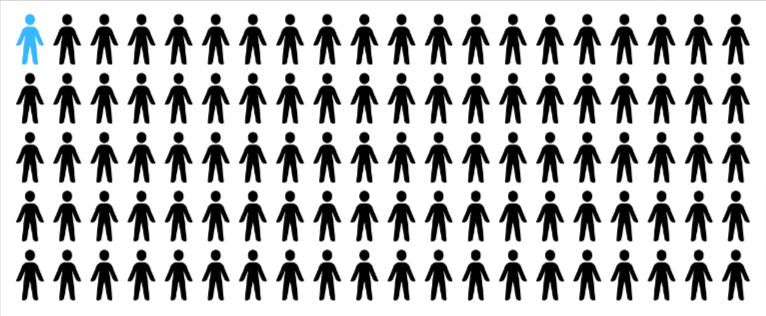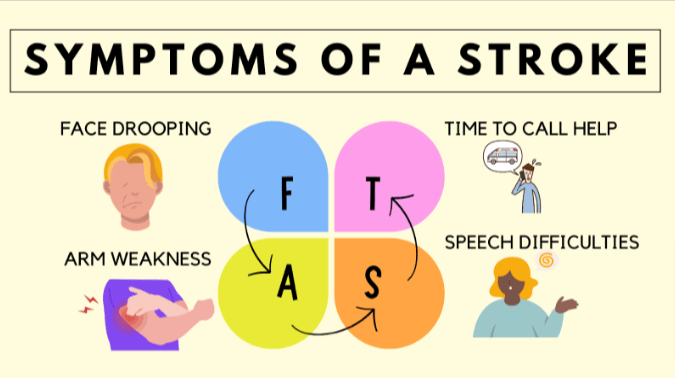Best Anxiety Treatment in Gurugram with Deep TMS Therapy: A Comprehensive Guide by Positive Mind Care and Research Centre
Anxiety disorders can be challenging to manage, but with the right treatment, significant improvement is...

Positive Mind Care and Research Centre is a leading mental health care facility of Delhi – NCR, dedicated to helping individuals to overcome Major Depressive Disorder and reclaim their joyful lives through a unique breakthrough technology called Deep Transcranial Magnetic Stimulation (Deep TMS), which can reach significant depth and breadth of the brain and produce broad stimulation and functional modulation of targeted brain areas to help treat MDD.
Deep TMS treatment features unique, patented coils that are fitted into a helmet, which is secured snugly to the patient’s head during the treatment. We are using BrainsWay’s therapy, which has been utilized in over 60 clinical trials worldwide. The company’s device has been FDA approved for the treatment of Major Depressive Disorder (MDD) since 2013, FDA cleared (De-Novo) for the treatment of Obsessive Compulsive Disorder (OCD) since 2018, FDA cleared as an aid for short-term Smoking Cessation since 2020, and has now received an expanded indication for Anxious Depression.
Post-stroke rehabilitation is a comprehensive and multidisciplinary approach to helping individuals recover and regain function after having a stroke. Stroke is a medical condition that occurs when there is a sudden interruption of blood flow to the brain, leading to brain damage and often resulting in various neurological deficits.
Post-stroke rehabilitation aims to address the physical, cognitive, emotional, and social challenges that can arise after a stroke. It typically involves a team of healthcare professionals, including physical therapists, occupational therapists, speech-language pathologists, psychologists, and social workers, who work together to develop a personalized rehabilitation plan for the individual.
The duration and intensity of post-stroke rehabilitation vary depending on the severity of the stroke and the individual’s specific needs and progress. Rehabilitation may take place in various settings, such as hospitals, outpatient clinics, rehabilitation centers, or even at home.
Post-stroke rehabilitation plays a critical role in helping stroke survivors maximize their recovery potential, improve their quality of life, and regain independence in their daily activities. It is essential to initiate rehabilitation as soon as possible after a stroke to optimize outcomes and support the individual’s long-term recovery journey.
About 1,85,000 strokes occur every year in India with nearly one stroke every 40 seconds and one stroke death every 4 minutes.

The goals of stroke rehabilitation are aimed at helping individuals who have experienced a stroke recover and regain function to the greatest extent possible. The specific goals may vary depending on the individual’s needs, the severity of the stroke, and the type of deficits they have. However, some common goals of stroke rehabilitation include:
Physical Recovery: To improve strength, balance, and coordination, and regain mobility and the ability to perform daily activities such as walking, standing, and getting in and out of bed or a chair.
Cognitive Rehabilitation: To address cognitive deficits, such as difficulties with memory, attention, problem-solving, and language, to enhance cognitive function and support the individual’s ability to participate in daily tasks.
Speech and Language Improvement: To help individuals overcome communication challenges, such as speech impairments or difficulties with language comprehension and expression.
Activities of Daily Living (ADL) Training: To assist individuals in relearning or adapting daily tasks, such as dressing, bathing, eating, and grooming, to regain independence and improve self-care abilities.
Swallowing Rehabilitation: To address difficulties with swallowing (dysphagia) and improve safety and efficiency during eating and drinking.
Psychological and Emotional Support: To provide counseling and emotional support to help individuals cope with the emotional impact of stroke, such as depression, anxiety, and adjustment to the life changes caused by the stroke.
Functional Independence: To work towards the individual’s ability to live as independently as possible and participate in meaningful activities, such as hobbies, work, and social interactions.
Prevention of Secondary Complications: To minimize the risk of additional health issues, such as pressure sores, joint contractures, and pneumonia, which can arise due to immobility or other stroke-related factors.
Education and Training: To educate both the individual and their family members about stroke recovery, managing risk factors, and maintaining a healthy lifestyle to prevent future strokes and promote long-term well-being.
Stroke rehabilitation is a dynamic and ongoing process that may take place in various settings, such as hospitals, rehabilitation centers, outpatient clinics, or even at home. The rehabilitation team, which often includes physical therapists, occupational therapists, speech-language pathologists, psychologists, and social workers, works collaboratively to tailor a personalized rehabilitation plan to support the individual’s recovery journey. Early initiation of rehabilitation after a stroke is crucial to maximize recovery potential and achieve the best possible outcomes.

Provides a convenient and flexible approach to treatment, allowing patients to receive care while maintaining their daily routines.
A non-invasive procedure that targets specific areas of the brain associated with depression. This innovative treatment option has shown promising results in reducing symptoms of MDD and is FDA approved.
A supportive and empathetic environment to express thoughts, emotions, and experiences, develop coping strategies, and gain insights to improve overall well-being.
Our center combines expert medical care with a compassionate and supportive environment, empowering individuals to reclaim their lives.
Cultivate awareness, reduce stress, and enhance overall well-being through meditation, yoga, and other practices to keep you grounded.
Our center combines expert medical care with a compassionate and supportive environment, empowering individuals to reclaim their lives.
Deep Transcranial Magnetic Stimulation (Deep TMS) is a non-invasive brain stimulation technique that has been studied as a potential treatment for various neuropsychiatric conditions, including smoking addiction. While the research in this area is still ongoing, Deep TMS has shown some promising results in helping individuals with smoking addiction. Here’s how Deep TMS may help in treating smoking addiction:
We at Positive Mind Care and Research Centre, a new generation mental health clinic, are dedicated to providing the highest quality care and research in the field of mental health. We take a positive and holistic approach to mental health, focusing on the individual as a whole and their unique needs and circumstances. We are committed to using evidence-based scientific treatment methods, conducting research, and providing education and outreach to the community. Remember that you are not alone, and we are here to help you on your journey towards betterment!
Anxiety disorders can be challenging to manage, but with the right treatment, significant improvement is...
Obsessive-Compulsive Disorder (OCD) is a challenging mental health condition characterized by intrusive thoughts (obsessions) and...
Anxiety is a common mental health condition that affects millions of people worldwide.
Learn more about how Positive Mind Care innovative TMS treatment technology can be effective in treating psychiatric disorders.
Learn more about how DEEP TMS treatment technology can be effective in treating neurological disorders.
Disclaimer:- The information provided on this website is for informational & educational purposes only and should not replace professional medical advice. Please consult with a qualified healthcare provider for personalized treatment recommendations.
Copyright © 2023. Positive Mind Care. All Rights Reserved